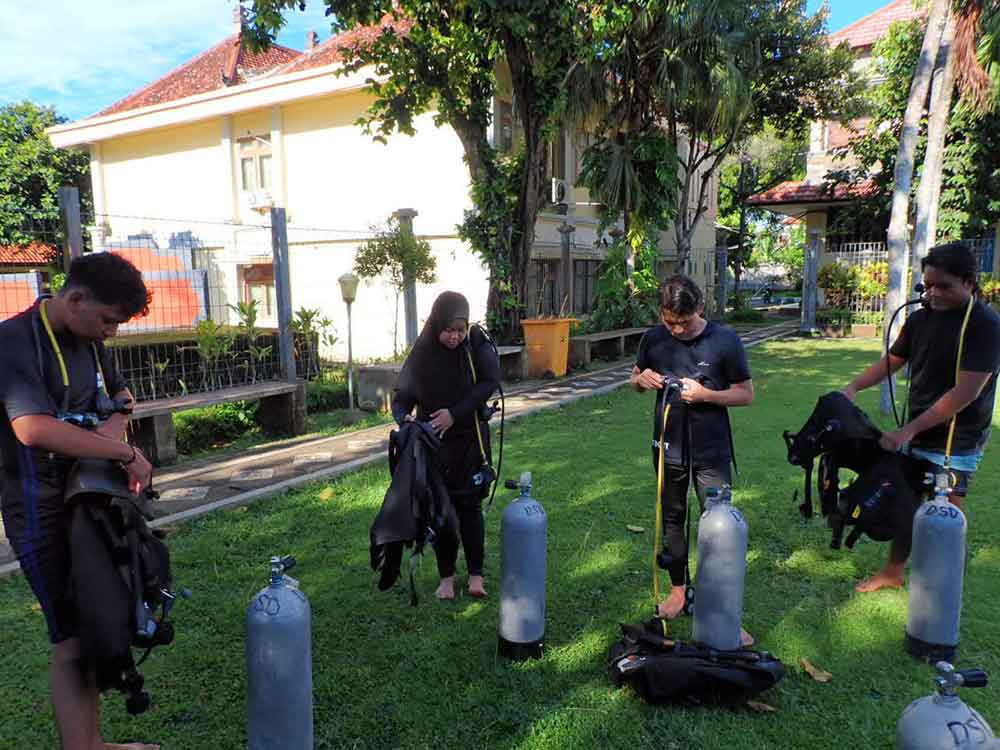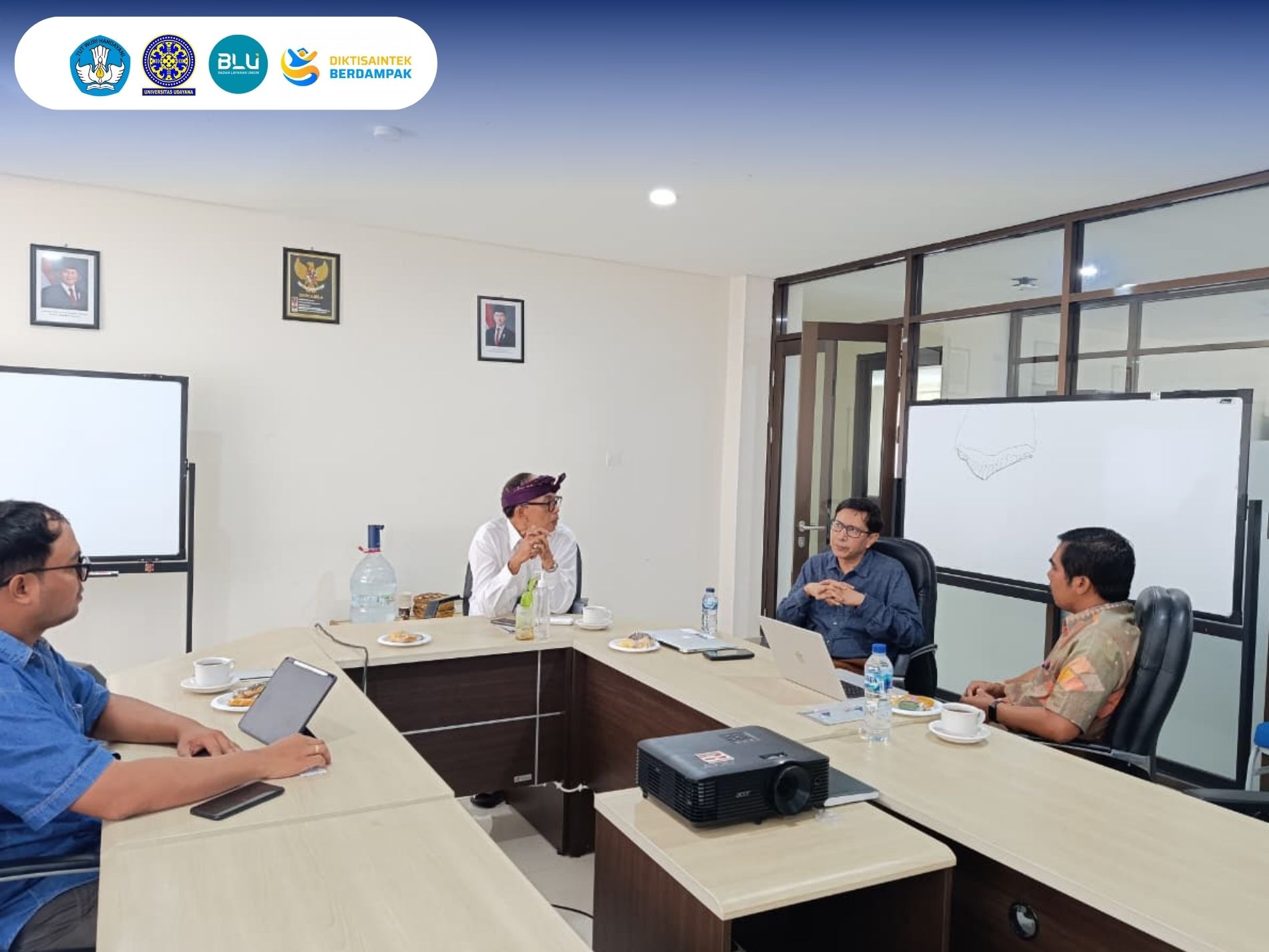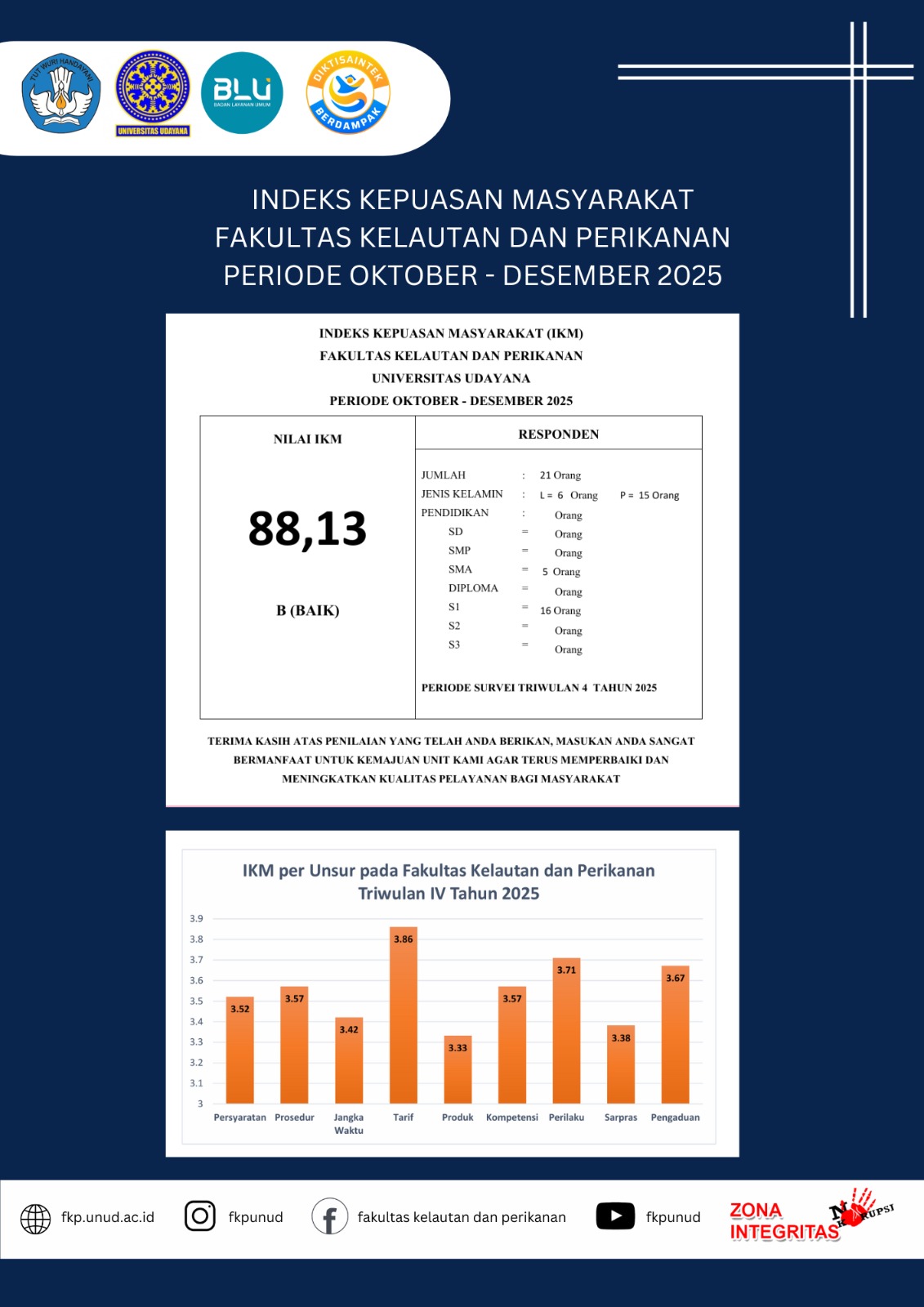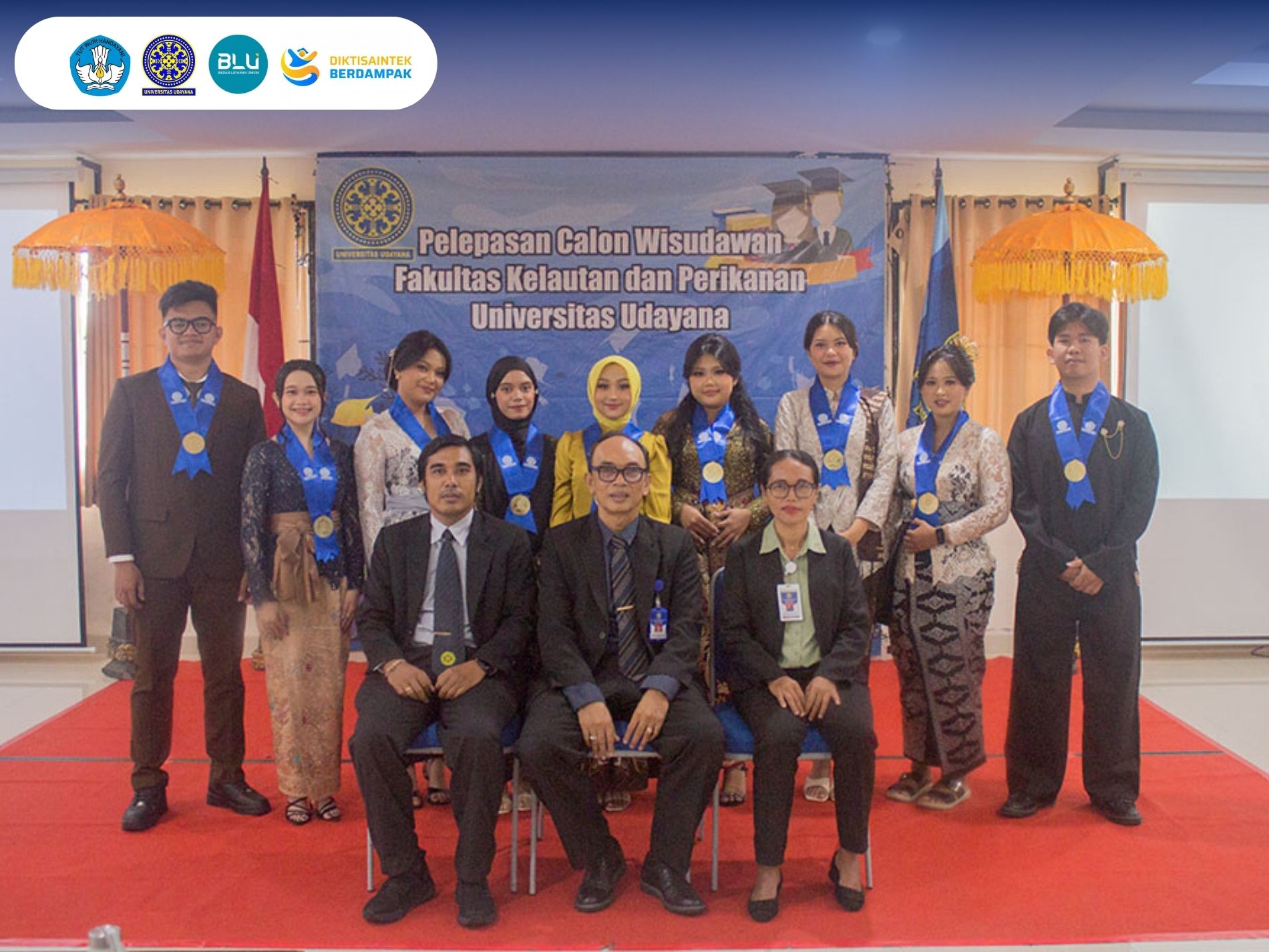Enhancing Hard Skills in Scientific Diving: BASIC Udayana Conducts PAGODA Cadre Training
Pendidikan Anggota Muda (PAGODA) is a new program initiated by the Education and Training Division (DIKLAT) of BASIC Udayana. This five-month cadre training process aims to develop the skills of junior members in scientific diving and familiarize them with the activities within BASIC Udayana. PAGODA is a mandatory requirement for junior members to advance to full membership in BASIC Udayana and to deepen their understanding of SCUBA and scientific diving.
The training covers a comprehensive curriculum, including:
- Introduction: An overview of BASIC Udayana's establishment, the meaning of its emblem, its vision and mission, and membership and organizational structure.
- SCUBA Diving: Introduction to SCUBA diving equipment, a brief history of SCUBA diving, basic diving techniques, and diving-related illnesses.
- Scientific Diving: An introduction to coral reef ecosystems, methods of coral, reef fish, and megabenthos data collection and analysis.
The PAGODA program is structured according to a curriculum designed by BASIC Udayana’s management, consisting of multiple phases with distinct modules. The training is conducted in two parts: theoretical sessions held at the Faculty of Marine and Fisheries building, and practical sessions conducted in the pool at Bali State Polytechnic (PNB), utilizing diving equipment provided by the faculty.
The PAGODA training ran from March 18, 2024, to August 27, 2024, involving 22 active students from the Faculty of Marine and Fisheries at Udayana University, spanning the 2021–2023 cohorts. The program was carried out in collaboration with the Research and Development Division (Litbang), which provided scientific diving materials. Additionally, senior BASIC Udayana members with sufficient knowledge and experience in scientific diving contributed as trainers for both diving and scientific diving skills.
To support the training, the faculty provided essential diving equipment such as BCDs, regulators, masks, and fins for junior members who lacked personal gear. Participants were required to cover pool and tank rental fees for field exercises.
Natalia Friskila Sianturi, a BASIC Udayana member and representative of the Research and Development Division, highlighted the importance of this program in building scientific diving skills and fostering a deeper understanding of BASIC Udayana. She also emphasized the need for improvements in training schedules. “Praise God, this program was successfully carried out without any obstacles or unwanted incidents,” she said.
With the successful completion of the PAGODA training program, it is hoped that junior members will fully grasp the materials presented and develop their scientific diving skills, contributing meaningfully to BASIC Udayana’s mission. This report serves as the official documentation of the PAGODA program.




UDAYANA UNIVERSITY